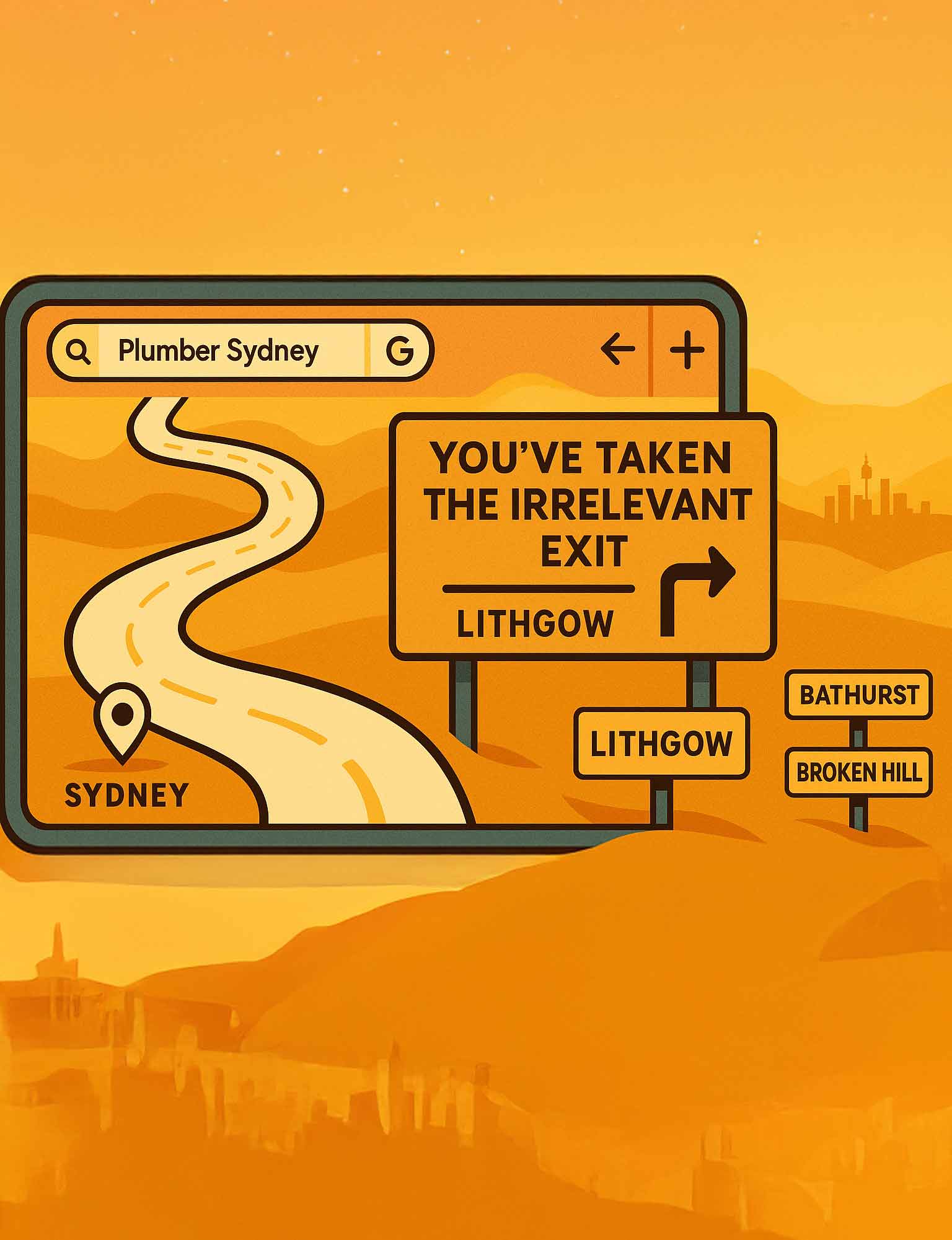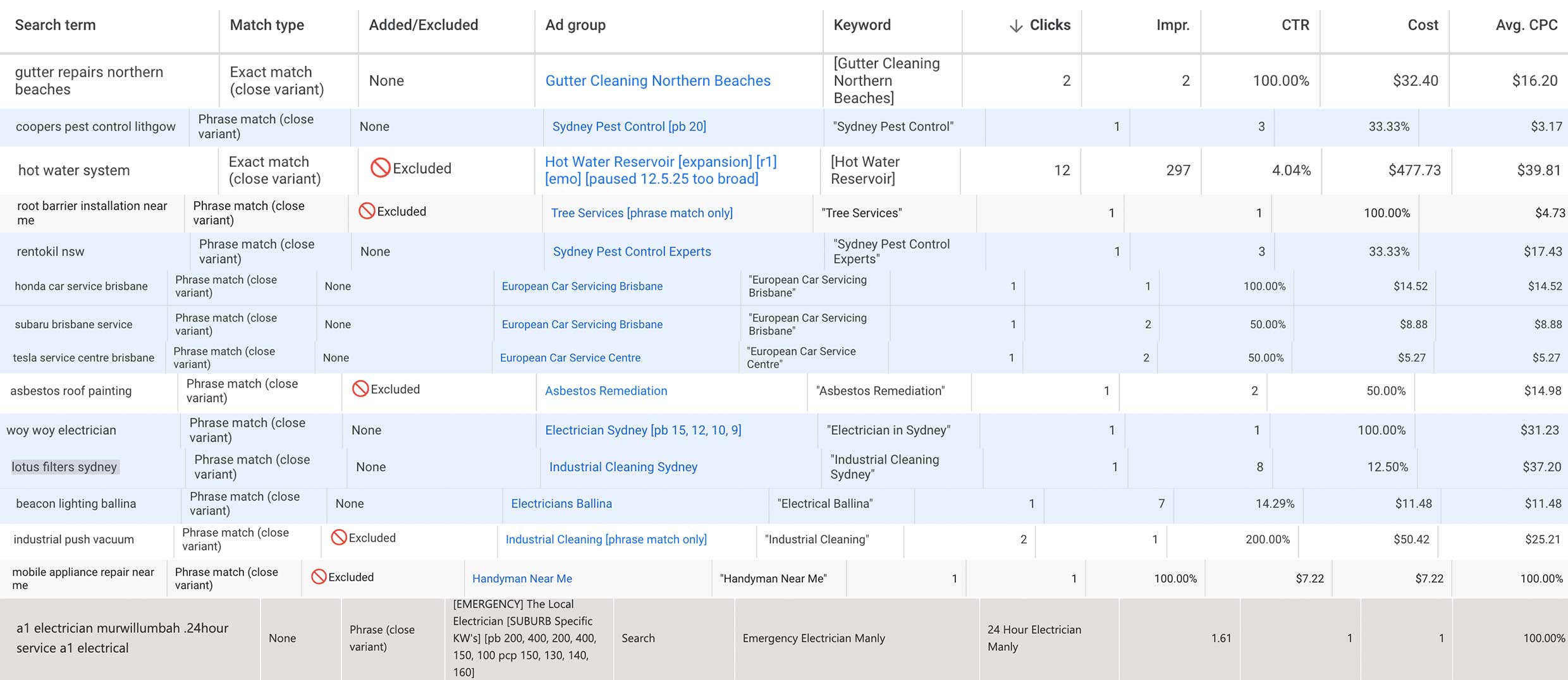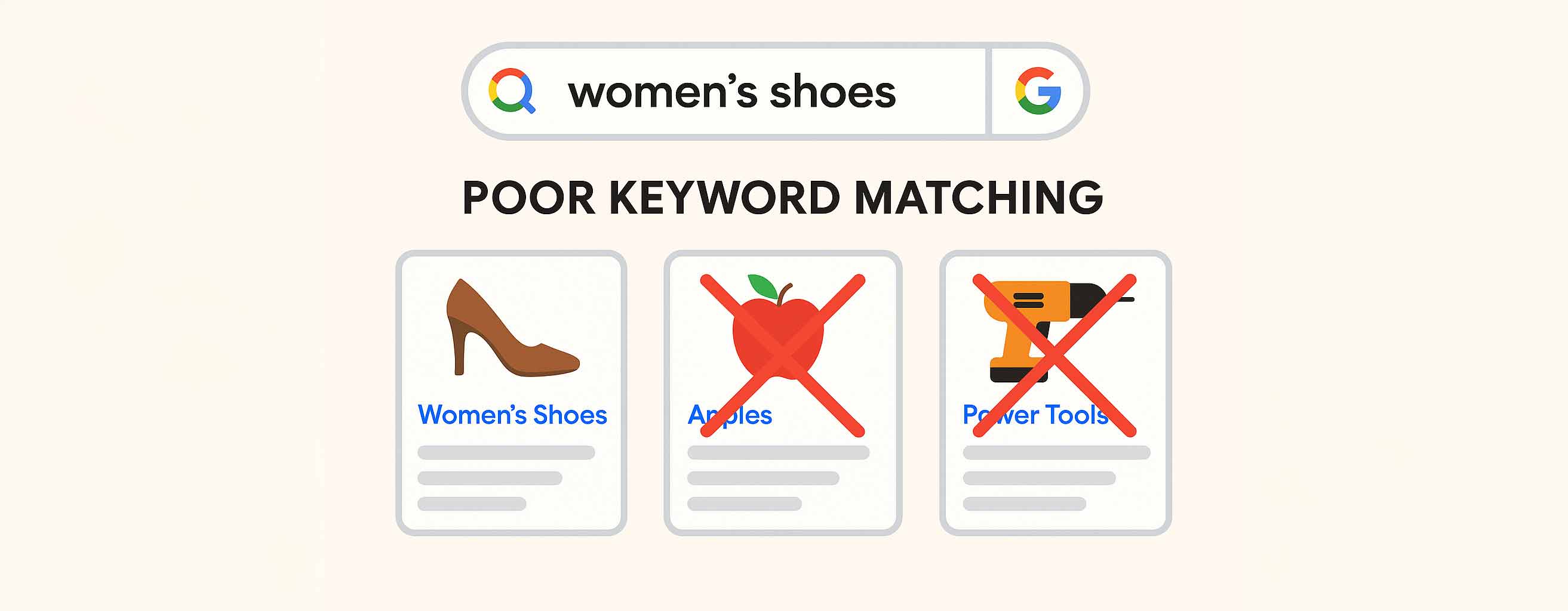When Google Forgets Lithgow Isn’t Exactly ‘Local’ to Sydney: Why Negative Match Keyword Programming is SO Important
Joel
Latest posts by Joel (see all)
- Google Says We’re in the Top 3% of Agencies (Again) - February 25, 2026
- Christmas New Year Office Closure and Opening Hours at Mr Search - December 9, 2025
- Why Can’t I See My Google Ads Listing? Here’s What Might Be Happening - July 13, 2025
The Hidden Cost of Google’s “Helpful” Automation: If you’re a Sydney-based business, the Google Ads advertising we run for you should be reaching people who are genuinely searching in your service area, right? Unfortunately, time and again, we see examples of Google’s automated close match logic getting it completely wrong.
Google Ads keywords specifically targeting Sydney based keywords can sometimes end up being shown on Lithgow based keywords — a two-hour drive away — thanks to Google’s automated and increasingly broad ‘close match variants’ keyword matching. Please see the example keyword screenshots below. Someone pays for that mistake. Spoiler: it’s not Google.
Mismatches like this are not one-offs. They’re unfortunately regular, recurring issues that we see on an almost daily basis. We invest considerable resources into managing and blocking bad matches through our ever expanding negative match keyword programming to maximise results and represent the best interests of each and every one of our clients.
Why Negative Keyword Programming Matters More Than You Think
Negative keywords are not just a technical feature — they are one of the most important levers in making Google Ads programming efficient and commercially viable. At Mr Search, we constantly expand and refine our negative match keyword programming (based on Google’s ever expanding keyword match type interpretations) to ensure our campaigns aren’t being triggered by irrelevant, time-wasting queries.
For example, if we’re targeting “Plumbers Parramatta”, we will actively block traffic from job seekers, information gatherers, and importantly — out-of-area locations like Lithgow or Newcastle that can easily slip through Google’s automated close match variant matching.
Without this proactive approach, Google or Microsoft Bing may well be billing you for Google Ads clicks that never had the potential to convert.

Some Recent Examples of Poor Keyword Matching from Google or Microsoft’s Automated Systems Include:
These are just a few actual search term mismatches that were caught and blocked through our monitoring:
- Target Keyword: Electrician Marrickville
Triggered Search: Marrickville Physiotherapy
A health-related search matched to a trades campaign. Completely irrelevant. - Target Keyword: Plumber Killara
Triggered Search: Killara Motor Inn
Someone booking accommodation was served a plumbing ad. - Target Keyword: Childcare Mortdale
Triggered Search: Mortdale Nursery Inertial
Nursery as in plants — not children. Google often gets this one wrong. - Target Keyword: European Car Service Brisbane
Triggered Search: Subaru Brisbane Service
Campaign aimed at high-end vehicles matched with mass-market traffic. - Target Keyword: Tree Services
Triggered Search: Root Barrier Installation Near Me
One is about tree removal. The other is about preventing tree growth — opposite needs.
Recent real world example screenshots of so called “close match variants”:

What We Do About Poor Google Ads Automated Keyword Matching — And Why It Matters to You
At Mr Search, we don’t believe in set-and-forget Google Ads management. We monitor search term reports regularly, identifying any rogue queries that may be diluting your ad spend and performance.
This includes:
- Blocking irrelevant suburbs and towns if/when they come up
- Identifying misleading or ambiguous terms
- Cutting out non-commercial or low-intent searches
- Staying ahead of Google’s ever-changing definition of “close variant”
Every new batch of search data is an opportunity to improve performance — but only if someone is actually reviewing it. That’s exactly what we do, and we use this to further optimise our PPC advertising performance and ROI.

The Value of Our Strategic Negative Match Programming
Our ongoing optimisation helps to protect your budget and improves results by:
- Increasing click-through rate (CTR) by showing ads to the right people
- Reducing cost-per-click through improved Quality Scores
- Ensuring you only compete where there’s a real chance to win business
- Keeping your ads visible in high-value, high-conversion areas
It’s not a one-time setup. It’s a long-term process that we manage with care.
Final Thought: We Can’t Always Rely on Google’s Automated Systems to Get this Right
Google’s automation serves its own bottom line — and that doesn’t always match yours. That’s why we take a hands-on approach to monitoring and refining your campaigns, with particular focus on the negative match keyword strategy.
When we see a search from Cairns showing your ad in Brisbane for example, we don’t just shake our heads — we fix it. And we keep fixing it month, after month, after month.
If you’re a Mr Search client, this is one of the most valuable, least visible parts of the work we do behind the scenes. And if you’re not, there’s a good chance your campaigns are leaking budget — one irrelevant click at a time.
We hope you found this to be a helpful read. If so, we’d love it if you left us a thumbs up or comment below!







